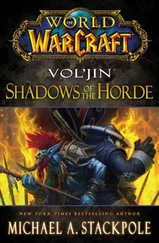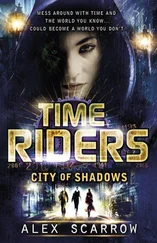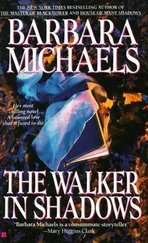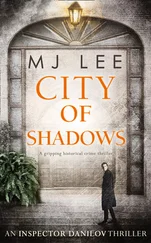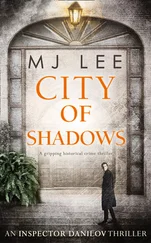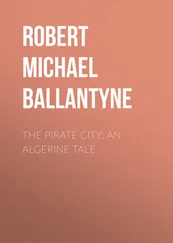Michael Russell - The City of Shadows
Здесь есть возможность читать онлайн «Michael Russell - The City of Shadows» — ознакомительный отрывок электронной книги совершенно бесплатно, а после прочтения отрывка купить полную версию. В некоторых случаях можно слушать аудио, скачать через торрент в формате fb2 и присутствует краткое содержание. Жанр: Исторический детектив, на английском языке. Описание произведения, (предисловие) а так же отзывы посетителей доступны на портале библиотеки ЛибКат.
- Название:The City of Shadows
- Автор:
- Жанр:
- Год:неизвестен
- ISBN:нет данных
- Рейтинг книги:5 / 5. Голосов: 1
-
Избранное:Добавить в избранное
- Отзывы:
-
Ваша оценка:
- 100
- 1
- 2
- 3
- 4
- 5
The City of Shadows: краткое содержание, описание и аннотация
Предлагаем к чтению аннотацию, описание, краткое содержание или предисловие (зависит от того, что написал сам автор книги «The City of Shadows»). Если вы не нашли необходимую информацию о книге — напишите в комментариях, мы постараемся отыскать её.
The City of Shadows — читать онлайн ознакомительный отрывок
Ниже представлен текст книги, разбитый по страницам. Система сохранения места последней прочитанной страницы, позволяет с удобством читать онлайн бесплатно книгу «The City of Shadows», без необходимости каждый раз заново искать на чём Вы остановились. Поставьте закладку, и сможете в любой момент перейти на страницу, на которой закончили чтение.
Интервал:
Закладка:
‘You can wait downstairs, Mr Field. I won’t disturb anything.’
The small, nervous man, grey-haired, grey-skinned, nodded and went away, relieved that he wasn’t needed. Stefan looked back at the photograph album. He found a picture of two girls in school uniform, twelve or thirteen, their arms round each other, laughing. Behind them were the blurred bars of a cage. It looked like Dublin Zoo. He easily recognised Hannah Rosen beside Susan Field.
Half an hour later Stefan came downstairs. He had found nothing that helped him. Mr Field was sitting in an armchair in the cluttered front room, looking out through the net curtains at nothing. He stood up. It was clear that the detective’s arrival had made him uncomfortable. He moved in front of the fire, standing with his hands clasped tightly behind his back now. He didn’t want the conversation that Hannah Rosen’s stubbornness was forcing on him. His daughter’s disappearance was in a box and he had closed the lid as far as he could. He knew Hannah thought Susan was dead, but he still didn’t believe that himself. Shame played a part in it. He felt shame for his daughter, as well as grief and loss. He couldn’t bring himself to contemplate Hannah’s dark, insistent questioning. He didn’t want to go there with her. There was enough shame to explain why his daughter might have run away.
When Brian Field’s father, Abraham Breitfeld, arrived in Dublin from Kiev in 1896, via Warsaw, Hamburg, Amsterdam and Manchester, he had worked as a peddler, tramping the roads of South Dublin, Wicklow, Carlow, and Wexford. After three years he opened a grocer’s shop in Clanbrassil Street. He moved his wife and his children from a tenement in Malpas Street to a flat over the shop. Two years later he bought the terraced house in Lennox Street, just north of the Grand Canal, in the part of Portobello that became known as Little Jerusalem. It was the first year of the twentieth century, the year of Queen Victoria’s last visit to Ireland, and the year Abraham Breitfeld became Abraham Field. He had brought with him from Russia a view of the world that adapted very easily to his new home. The English were the Russians, the Irish were the Jews; Queen Victoria was the Czar. He was immediately a staunch nationalist. Though his English was never very good, his children could not only speak it perfectly before they went to school, they could even read Irish, when the Irish friends they played with in the street could barely understand a word of it.
Brian Field still lived in his father’s house. His children had grown up in it and his wife had died in it. When his friends made the move over the Grand Canal to leafy Harold’s Cross and Terenure, he stayed where he was. The business was sold now and his life was devoted to something else. He was the cantor at the Adelaide Road Synagogue. His children were grown up; Judith was dead. He had a daughter in New York, a daughter in London, and had long known that when Susan left he would be an old man on his own. There would be no woman to light the Shabbat candles in the house in Lennox Street any more. In recent years Susan had done it, but more often than not she hadn’t been there. Now she was gone altogether. He still had the memory of the noisy family at the table. It was a painful memory. It wasn’t a long walk to shul; that was what had come to matter. It was only when he sang in the synagogue that he didn’t feel old.
Absence was in Jewish blood in the same way it was in the blood of the Irish. People were always going. That’s how it was. His father’s brothers and sisters were in Poland and Germany and England and South Africa and America; they had left their parents in Russia and never seen them again. Mr Field had always known Susan would go, sooner or later, like her sisters, to Palestine perhaps. That was why she wanted a degree, so that she could teach there. He’d never been comfortable with the young Zionists she used to bring home. He enjoyed the arguments, but there was too much socialism and communism flying around for his taste. He didn’t really notice when she stopped bringing anybody home at all. He was too busy at the synagogue.
‘There’s nothing more I can tell you, Mr Gillespie.’
‘She has a sister in London.’
‘Yes, in Finchley.’
‘Would she have contacted her?’
‘Susan’s nearly ten years younger. Rachel has a family now.’ It wasn’t an answer; it was empty evasion. It was a man trying not to think.
‘What does she say about it?’
‘We just don’t know, Sergeant, none of us know.’
‘She must think something.’
‘I went to the police again, when Rachel came over, but there was nothing more to find out. Susan was living her own life. She lived in the house, but we hardly saw each other. Sometimes she was here, sometimes she wasn’t. I know she was very unsettled. I should have talked to her, I know I should. Rachel felt the only thing we could do was wait — ’
Stefan took a small photograph of Susan Field from his pocket. He had found it upstairs in one of the boxes. It was a head-and-shoulder shot, taken not long ago. Her hair was cut short; she wore a dark, tailored jacket.
‘Can I borrow this? I’ll get a copy made.’
‘Yes, of course.’
‘I will do my best to find out what happened to Susan, Mr Field. Would you mind if Hannah Rosen looked through her things? She might see something I can’t see. She knew Susan. If there was anything out of place — ’
The cantor nodded, but there was really no hope in his tired eyes, only growing resignation. He had already waited too long to look for anything now, let alone hope.
‘Is there anyone else she was close to? Anywhere else she could have gone? Was there anyone else she knew in England?’
Mr Field shook his head. ‘We talked to everyone we could think of.’
Stefan waited. He could see that the old man was holding back tears. But there were still questions he had to ask, however difficult they were.
‘You know she was going to have an abortion?’
Brian Field shrugged, pushing away the tears.
‘It’s what she said to Hannah, in her letters. I didn’t know before.’ He turned his eyes back to the window. ‘I knew she was unhappy. I didn’t know why. And if I’d asked her she wouldn’t have told me. That’s how it was.’
‘What about the man who was the father?’
‘I know what Hannah told me.’ The words were short and curt.
‘Do you think Hannah was the only person Susan confided in?’
He turned back towards Stefan and nodded again.
‘Yes. It doesn’t say much for us, does it, Sergeant?’
Bewley’s Cafe in Grafton Street was quiet. It was still early. Breakfasters were lingering over morning papers and the waitresses were laying the tables for lunch. Hannah Rosen and Stefan Gillespie sat over empty tea cups. He had asked her to go to Lennox Street to look through the belongings in Susan Field’s room. There was at least a chance she might see something significant that would have meant nothing to him. He had talked about the letters. He had tried to piece together what they said about the time leading up to Susan’s disappearance. Now he had faced the most difficult part of the conversation; telling her that Hugo Keller had left Ireland. There would be no opportunity to ask any questions about the day Susan Field went to the clinic in Merrion Square now, or even to confirm that she really did go there. Hannah saw how uncomfortable he was and that did something to curb her anger, but she also knew he wasn’t revealing everything. She had talked easily before; now there was distance. It wasn’t mistrust, but it was doubt.
‘When did you find out he’d gone?’
‘Yesterday, after I saw you.’
‘From the Special Branch man, Sergeant Lynch?’
Читать дальшеИнтервал:
Закладка:
Похожие книги на «The City of Shadows»
Представляем Вашему вниманию похожие книги на «The City of Shadows» списком для выбора. Мы отобрали схожую по названию и смыслу литературу в надежде предоставить читателям больше вариантов отыскать новые, интересные, ещё непрочитанные произведения.
Обсуждение, отзывы о книге «The City of Shadows» и просто собственные мнения читателей. Оставьте ваши комментарии, напишите, что Вы думаете о произведении, его смысле или главных героях. Укажите что конкретно понравилось, а что нет, и почему Вы так считаете.

